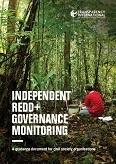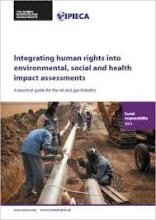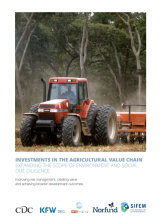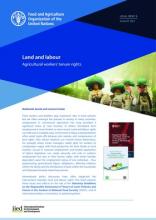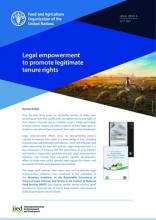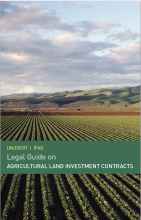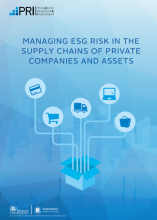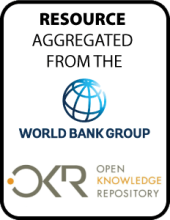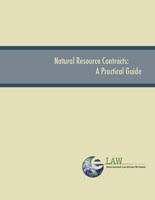Resources for E&S impact assessment
Independent Redd+ Governance Monitoring: A Guidance Document For Civil Society Organisations
This guidance document is an overview of key steps and considerations for the design and implementation of effective independent REDD+ governance monitoring systems. It draws on a growing body of experiences and case studies undertaken by CSOs within and outside the Transparency International movement, and across different tropical forest countries.
Integrated Mine Closure: Good Practice Guide
This document is intended to promote a disciplined approach to integrated closure planning and increase the uniformity of good practice across the sector. The concepts apply equally to both large and small mining companies.
Integrated mine closure is a dynamic and iterative process that considers environmental, social and economic factors from an early stage of mine development and throughout the life of an asset. Fundamental to this process is the need to consider closure as an integral part of the mine operations’ core business. The structure of the guide reflects this process, providing good practice guidance to key elements of mine closure planning and implementation (see infographic).
Integrating human rights into environmental, social and health impact assessments - A practical guide for the oil and gas industry
This Guide describes how human rights should be integrated into environmental, social and health impact assessments (ESHIAs). It provides an introduction to human rights and their relevance to the activities of the oil and gas industry, and briefly describes why it is important for the oil and gas industry to consider the impact that its projects and activities have on human rights.
Investments in the Agricultural Value Chain: Expanding the Scope of Environment and Social Due Diligence - Improving Risk management, Creating Value and Achieving Broader Development Outcomes
This report provides guidance for development finance institutions and investors seeking to understand and manage environmental and social issues responsibly at different stages of the value chain. It provides
• information on ways investors can expand the scope of due diligence to further improve E&S risk management and drive value through supply chains,
• initial and practical information about the links between upstream and downstream actors in the value chain, including primary producers and project-affected communities, and
• a more integrated approach to E&S risk management, value creation and development.
Land and labour
Land and labour rights can intersect in multiple ways. Investments in large-scale plantations often entail trade-offs between job creation and compressions of land rights. Also, labour relations can involve tenure dimensions, for example where estate managers sublet plots for workers to complement wages with food production for their family or local markets.
Casual or seasonal employment and limited application of labour legislation can create precarity not only in workers’ employment but also in their tenure rights, with entire families dependent upon the employment status of one individual – thus perpetuating generational labour obligations, affecting relations within the family and the distribution of tasks within the household, and disproportionately impacting women. International policy discourses have often neglected these intersections.
Legal empowerment to promote legitimate tenure rights
Over the past 30 years, an increasing number of states have passed good laws that significantly strengthen the tenure rights of their citizens. However, due to multiple barriers, a high percentage of many nations’ citizens are either unaware of their legal rights or unable to use national laws to protect their rights when threatened.
Legal empowerment efforts focus on strengthening citizens’ capacity to exercise their rights in a wide variety of forums, including in government administrative procedures, courts and tribunals, and when advocating for laws and policies. Legal empowerment is a key component of ensuring that the governance of land, fisheries and forests is responsible, equitable and just. Legal empowerment initiatives may include legal education; capacity development; efforts to shape state justice systems; legal support for citizens; and promotion of citizen participation in law-making.
Legal Guide on Agricultural Land Investment Contracts
Investment in agriculture is essential for sustainable development, in particular for achieving food security, adequate nutrition, decent employment, poverty reduction and environmental protection. In seeking to attract agricultural investment, many governments and local communities have entered into Agricultural Land Investment Contracts (ALIC). Mindful of the contractual challenges involved and considering the importance of enhancing knowledge of the legal regime applicable to agricultural land investment operations, the International Institute for the Unification of Private Law (UNIDROIT) in collaboration with the International Fund for Agricultural Development (IFAD) have prepared this UNIDROIT/IFAD Legal Guide on Agricultural Land Investment Contracts (ALIC Legal Guide).
Managing ESG Risk In The Supply Chains Of Private Companies and Assets
This guide is primarily intended for private equity and real asset investors seeking to improve the risk profile of their portfolios and maximise their returns by investing in companies that manage their supply chains effectively. It provides information on what to look for and on how to engage with companies on E&S risks in supply chains.
Mining Community Development Agreements : Source Book
The aim of this document is to support strategic and collaborative community development planning by governments, companies, civil society, and communities by presenting a basic framework for Community Development Agreements in the context of the mining industry. In particular, this document is a tool for governments and policymakers at all levels, as they strive to support their communities—economically and socially—through the sustainable development of mineral resources. It should inform policymakers of the process and content of best-practice CDAs, allowing improved results from CDA development.
This resource is part of the CCSI’s Directory of Community Guidance on Agreements Relating to Agriculture or Forestry Investment.
Natural Resource Contracts: A Practical Guide
This guide aims to explain common topics that are addressed in natural resource contracts and to provide suggestions for improving contracts that are vague or unfavorable to host countries and to the protection of land rights. It covers a number of topics relevant to contracts:
● Environmental and social issues
● Fiscal provisions
● Transparency
● Dispute resolution
This resource is part of the CCSI’s Directory of Community Guidance on Agreements Relating to Agriculture or Forestry Investment.


